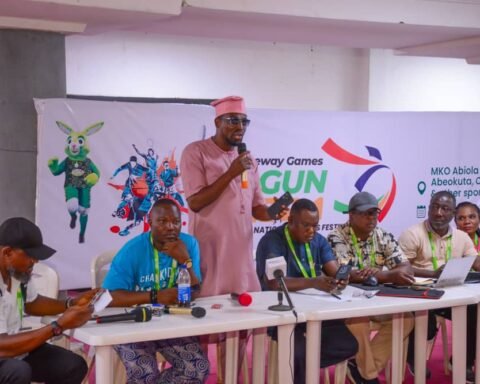Last week, I went to a newsstand to get a copy of one of Nigeria’s daily newspapers. To my surprise and astonishment, the vendor informed me that the newspaper in question was not available.
“I haven’t seen it today,” the vendor said. As I scanned the scanty display of newspapers, I noticed that the items available were not even up to 100 pieces. Determined to get the copy at all costs, I decided to head to the popular Oshodi area. I remembered Oshodi as a hotspot for selling various second-hand books back in the day. Many vendors would gather there, often surrounded by readers eager to get their hands on a copy of the newspapers. This place was known as the “Bend Down Bookshop” because the books were laid out conspicuously on the bare ground to catch the attention of passersby interested in purchasing them.
However, the spot is now occupied by different traders selling items like clothes, vegetables, and other goods. I inquired whether the newspaper vendors had been relocated due to renovations in the area, which now boasts a state-of-the-art motor park built by the state government. I was told that only one vendor remained in the area. Glancing at the clock, I saw that it was a few minutes before 8 AM, but the vendor had not yet arrived—he had gone to pick up the daily newspapers.
My thoughts drifted back to the days when daily newspapers were hot commodities. Every newsstand was filled with commentators and analysts discussing various topics—sports, politics, and more. At every stand, there would be someone passionately sharing their perspective on the latest news.
The second-hand books back then were often called “Bend Down Select” because they were spread out on the ground, drawing in curious buyers. When I finally arrived at Oshodi, the scene was completely different. The area had been taken over by traders selling second-hand clothes, and I could not find any newspaper vendors. My mind wandered back to the days when every newsstand was bustling with readers.
A man would often stand at the newsstand, confidently dishing out various facts and figures on a wide range of topics—whether it was sports, politics, or the latest current events. His in-depth knowledge and engaging style made it truly captivating to listen to him speak. As people gathered around him, paying close attention to his every word, discussions would inevitably spark. Others in the crowd, not content with simply listening, would eagerly chime in, offering their own facts and perspectives on the issue being discussed.
These impromptu debates created an air of excitement, drawing in more and more onlookers. It was not uncommon for lively disagreements to arise, as different viewpoints clashed. However, fracas or physical altercations were rare; the atmosphere was mostly one of intellectual exchange and spirited conversation. This daily ritual had become a habit for many who frequented the spot. For them, it was a chance to not only catch up on the news but also to participate in thought-provoking discussions that kept them informed and engaged with the nation’s affairs.
The spot attracted a wide variety of people from all walks of life. Job seekers, who had plenty of time on their hands, would gather there to stay updated on the latest happenings, while elderly individuals, eager to stay informed about the country’s affairs, would also make their way to the scene. For many, it became a communal space, where they could connect with others, share ideas, and gain insights from the animated debates taking place. The mixture of personalities, backgrounds, and perspectives made it a vibrant melting pot, enriching the discussions and making it an unmissable part of daily life for those who sought to be in the know.
However, with the advent of mobile phones, this rich tradition has faded into the background. The way people consume news has drastically changed. Most of the conventional newspapers, which once thrived on these lively debates, have had to reduce their print production. As more people turn to their phones and other digital platforms to access the latest news, the once-bustling newsstands have lost much of their vibrant energy. Now, people find it easier to read news online, at their convenience, without having to make the trip to a stand or engage in those once-familiar debates. The communal aspect of news consumption has diminished, replaced by individual browsing on digital screens, marking the end of an era where news and conversation were shared in such a public, lively way.


























